A violinist friend in the City of Birmingham Symphony Orchestra used to talk about an orchestra’s ‘muscle memory’; a collective instinct that transmits itself, unspoken and unconscious, among the members of the ensemble. The occasion was a return visit from Sir Simon Rattle, a good decade and a half after he’d left Birmingham. At that point, perhaps only one third of the musicians had been present when Rattle last conducted this particular work. No matter. ‘You know how we play this,’ said Rattle, and sure enough they did, slipping as one into the exact articulation and dynamics that Rattle had instilled all those years ago. As with the human body, cells are replaced, but the individual remains the same.
So when Sir Mark Elder steps down as music director of the Hallé Orchestra next summer, to be succeeded by Kahchun Wong, it might not be the end of the story. We might still, on occasion, get to hear Elder and his orchestra responding to each other as naturally as they did in Manchester last week. I’ve written before about the effortlessness (like a couple finishing each other’s sentences) that comes when a conductor and orchestra have lived with each other for a very long time indeed. Twenty-four years is an epic tenure these days and the players, by all accounts, are more than ready for a change. But you can also bet that within 18 months they’ll be reminiscing during the morning tea break about what a legend Elder was; and how well he understood them.
And they’ll be dead right. It’s the little things: the opening phrase of Brahms’s Fourth Symphony, for example. It’s just four notes, grouped in two pairs, falling then rising. Brahms marks them to be played at a uniform piano but a string player’s instinct would be to insert a discreet crescendo as the phrase rises. The Hallé violins did the opposite; falling gently, swiftly away even as the melody strove upwards. It sounds like nothing much, but the collective discipline involved in a detail like that, and the refinement in making it sound so unforced, is not nothing – and the emotional impact, at the start of Brahms’s tragic journey, was like a gentle stab in the heart. It’s not Elder or the orchestra that takes the spotlight at moments like these, but Brahms.
The first half comprised the suite from Rimsky-Korsakov’s opera The Tale of Tsar Saltan, and Ravel’s Mother Goose ballet, both performed with surtitles so you could follow the plot and realise, for example, that Rimsky’s spangled roulades of woodwind and bells depicted ‘The squirrel cracking golden nuts’. Both these scores live on orchestral colour, but of very different kinds, and the contrast was ravishing: plump cushions of horn sound in the Rimsky became washes of pastel-tinted mist in the Ravel. The finesse, the tenderness, the sense of each melody as a singing, speaking presence; well, anyway, this is what I’m talking about. If you want to hear the most articulate, consistently beautiful playing of any full-time UK symphony orchestra in recent years, you have until June to catch Elder and the Hallé as a live partnership. Then it’s time for a new chapter – no bad thing in itself. But I hope they’ll get occasional chances to exercise that muscle memory.
Scottish Opera offered only one main stage production this autumn, and what used to look (to English operagoers) like the unhappy spectacle of a venerable company starved of respect and resources by a philistine regime now seems like a vision of the future south of the border, too. But the quality remains high – the company’s recent Puccini Trittico is up for an International Opera Award – and there was a capacity crowd in Edinburgh for this revival of The Barber of Seville. The production dates from 2007 and is directed by Sir Thomas Allen. Yes, that Sir Thomas Allen, and no, productions by singers who decide to have a late-career stab at directing (how hard can it be?) have not always delivered the goods.
This one does. It’s funny, faithful and inventive, with designer Simon Higlett’s sun-baked Mediterranean street opening up to reveal the fabulously decrepit interior of the Bartolo residence (Rosina sat glumly under an umbrella in the Act Two thunderstorm). The decrepitude stopped there: it was exuberantly sung and with Samuel Dale Johnson as a raffish Figaro, Anthony Gregory playing Almaviva as a silver fox and Simone McIntosh as the kind of Rosina who lights up the whole show, it absolutely bowled along. It was sung in English, so the jokes landed and the audience roared. Stuart Stratford conducted a modern orchestra with period-instrument zip, boosted by a true comedian on the piano continuo (Fiona MacSherry was credited). In short, this was everything you could want from a Barber of Seville – and lots of it.
Got something to add? Join the discussion and comment below.
Get 10 issues for just $10
Subscribe to The Spectator Australia today for the next 10 magazine issues, plus full online access, for just $10.
You might disagree with half of it, but you’ll enjoy reading all of it. Try your first month for free, then just $2 a week for the remainder of your first year.

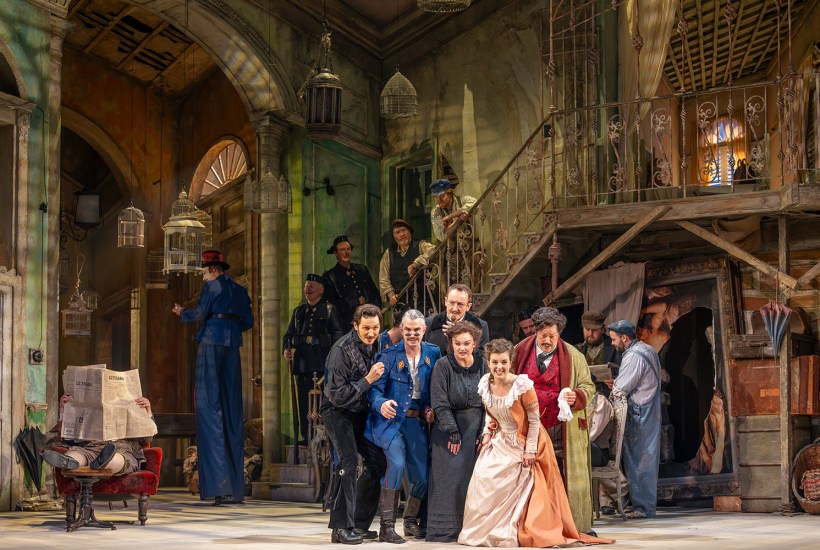
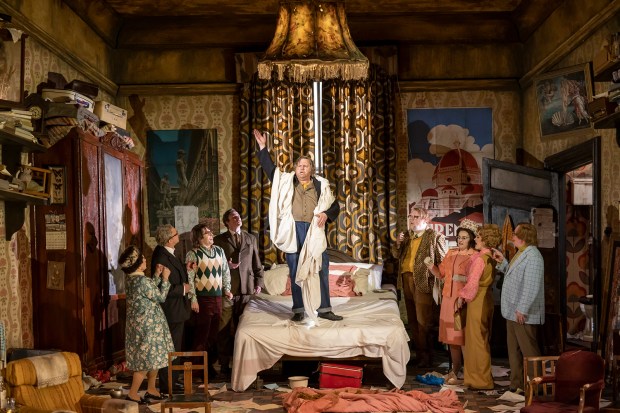
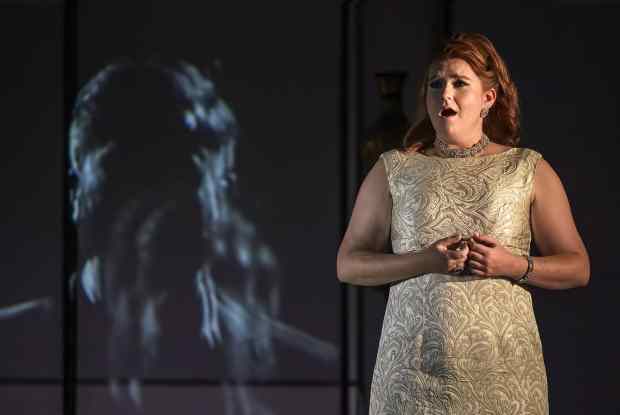
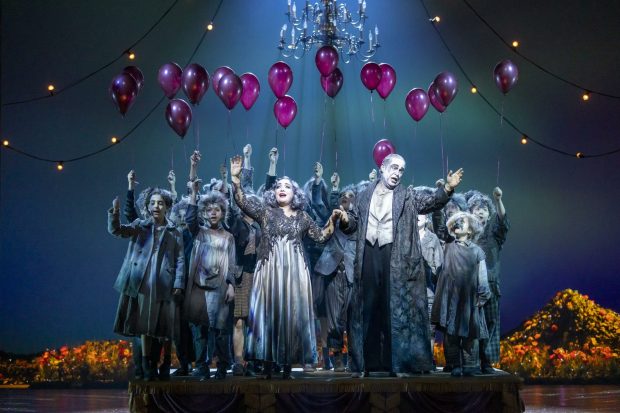
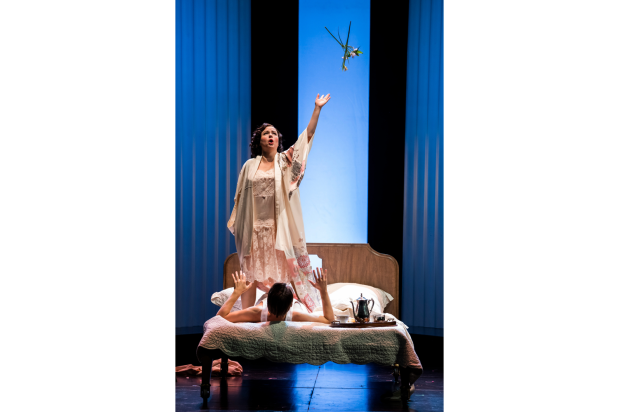
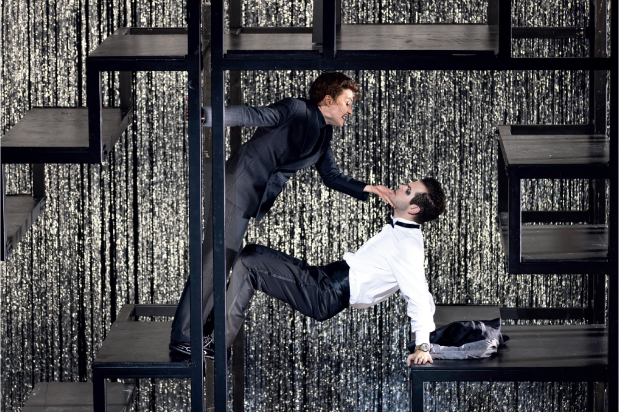
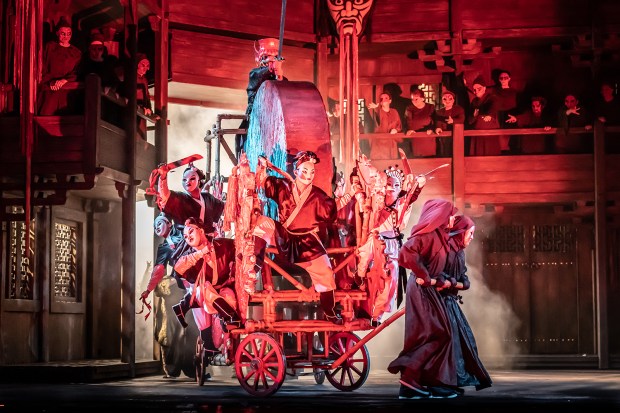






Comments
Don't miss out
Join the conversation with other Spectator Australia readers. Subscribe to leave a comment.
SUBSCRIBEAlready a subscriber? Log in